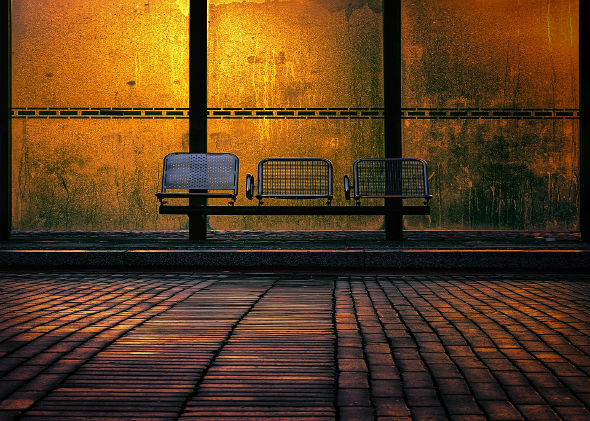
EDIT 23/02/2020 – Click here if you’re looking for information on the 2020 Brisbane Bicycle Film Festival.
It’s been a while between posts because my age seems to be catching up with me. My back has been giving me grief for the last little while so instead of riding, I’ve been attending physio and catching the bus to get places.
While I really hoped that by Friday I’d be healed up enough to get my Brompton back out and ride to the Brisbane Bicycle Film Festival, unfortunately it was not to be and I ended up walking there instead. Despite my ironic method of arrival, I had a great time and the event was a roaring success.
Sometimes it’s easy to get a bit despondent about the future of cycling when some arsehole buzzes you with his or her idiotmobile or you read a thread of dumb, irrational/emotional anti-cycling comments. But when an event like this comes along and you get the highest government official in charge of shaping our road infrastructure attending the event, I think there’s hope. Yes, Mark Bailey, the Minister for Transport and Main Roads did exactly that and on arrival gave a great speech outlining the details of the good things to come for cycling around Queensland. It gives me hope that the penny might have actually dropped more widely about car-centric cities not really being an option anymore and that a better way forward is needed.

The high level support was a thing that made the night on it’s own but the entertainment made it even better. Movies played to a sold out auditorium for a third year in a row and the line up included the finalists of the Bike Bites amateur film competition which was sponsored by one of Brisbane’s best bike shops, Epic Cycles followed by the feature, Why We Cycle.
We know that the infrastructure and bike culture in Amsterdam is fantastic and this new documentary shows in depth what makes it tick and dispels some common myths that car-centric cultures have been vomiting up for the last fifty to eighty years like the unexamined, reactionary furballs that they are. You know the ones like “cycling is dangerous”, “cyclists are reckless and break the law”, “bike lanes are ruining my neighborhood and causing congestion”, blah, blah, blah. The documentary certainly showed what we’re missing here in Brisbane and Australia more widely which is actually still quite a lot.
As well as Epic Cycles, the event’s other corporate sponsor is Maurice Blackburn Lawyers who are always ready to help out cyclists finding themselves in a spot of bother or worse.
Those attendees who were more able bodied than I was (which was pretty well everybody) also partook in the Style Over Speed ride which started at King George Square and ended at the venue at Kangaroo Point. That looks like a whole lot of fun and I certainly have my sights set on next year’s edition by which time I hope my body is well and truly cooperating with me again.
Lastly, a retrospective plug for the folks at Freestyle Cyclists who organised a protest ride on Saturday 17th March starting at the Wheel of Brisbane at Southbank which I was unable to attend due to my current condition. The cause is a great and topical one – pushing for the relaxation of mandatory helmet laws in Australia. I’ve spoken at length on that topic and would like to thank Freestyle Cyclists for their efforts.
While being in a situation where I can’t ride my bike is agonising to say the least, it has shed light on something for me. See, in my almost militant promotion of bicycle related mobility, urban planning and recreation there’s one thing that I’ve never tested first hand: car alternatives for people who can’t or won’t cycle either temporarily or permanently?
I’ve always said that, in place of cars, a variety of transport modes should be available to suit all tastes, budgets and situations including a big emphasis on better public transport, better access for mobility scooters for the elderly and disabled and to welcome any other “minority” modes like skateboards and kick scooters. I’ve deliberately left autonomous cars out of the conversation because I think they present way more problems than solutions.
Despite those propositions, I’ve never really tested the “hardly any car, no bike” situation properly for an extended period around Brisbane until now. Since my back problem, I’ve remained adamant that I can still live mostly without a car and although my car trips have risen slightly since my back problem, I’ve been able to get around pretty well using a combination of public transport and walking. Of course, no car at all would be even better and it’s not hard to imagine that if we keep striving for better public transport and more compact urban design that that would be well within reach. Until then, if you try this yourself, whilst you’ll certainly be able to get around, you will be doing a bit more waiting and walking than in any city with a properly developed public transport network but that might not be such a bad thing anyway given that most of us really need to stop all the idiotic rushing about and stressing that we currently do. Being forced to wait around for a while could be a good start.
Anyway, enough ranting from me. I’m off to get some Voltaren for my back. Ride safe and see you out there some time.

